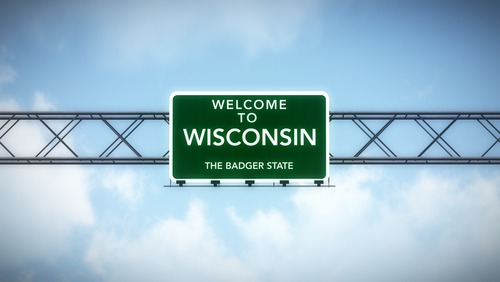
On Wednesday, Wisconsin Gov. Tony Evers announced several initiatives and investments to build “21st Century infrastructure” to improve the state’s roads, highways, and bridges.
During his 2023-25 Biennial Budget Message, Evers said that after improving more than 5,800 miles of roads and nearly 1,600 bridges during his first term, his latest budget included the highest level of funding into general transportation aids, which would directly help local counties and communities repair and maintain roads. Evers also proposed increased investment in electric vehicle infrastructure and measures to prevent reckless driving, as well as measures to bolster the supply chain. Additionally, he said he’s proposing using some of the state’s surplus to pay down transportation revenue bond debt.
“These investments will be critical for bringing our infrastructure into this century,” he said. “At the same time, we’re still balancing these investments with prudent decisions to prepare for future economic uncertainty. So, we’re going to use a portion of our state’s surplus not to create more ongoing expenses but to reduce them. We’re going to pay down $380 million in state debt in transportation revenue bonds. That means we’ll spend less of your hard-earned tax dollars in the future paying on debt and interest so we can stay focused on fixing the darn roads.
Evers’ plan to address transportation calls for, among other things, providing more than $50 million in segregated funds to supplement the Local Road Improvement Program and increasing state support of mass transit aids by 4 percent in 2024 and 2025, as well as providing $1.2 million in segregated funds for matching funds for the Transportation Alternatives Programs for small communities. For bridges and highways, Evers is proposing $47.2 million in bonding to begin reconstruction of the Blatnik Bridge in Superior and $50 million in bonding to support the Southern Bridge project, as well as $77 million for the State Highway Rehabilitation Project.
Evers’ plan to address road safety calls for an additional 35 full-time equivalent state trooper positions and 10 motor carrier inspector positions, $60 million to establish a new traffic calming program, and a Driver Licenses for All program to license drivers regardless of documented status. Evers’ budget would establish a program to use federal funds to build out the state’s electric vehicle charging infrastructure and provide $234,900 in financial aid during the 2023-2024 fiscal year to create two full-time positions in the Wisconsin Department of Agriculture, Trade, and Consumer Protection who would oversee electric charging stations.
“Investing in 21st Century transportation and infrastructure is essential to prepare our workforce and our economy for the future, and we have to start right away,” Evers said.